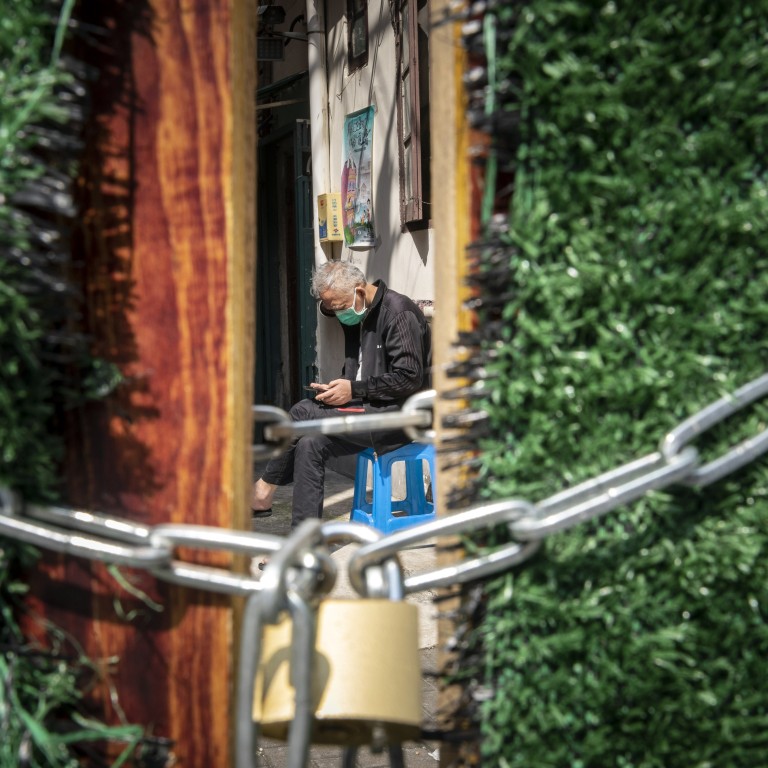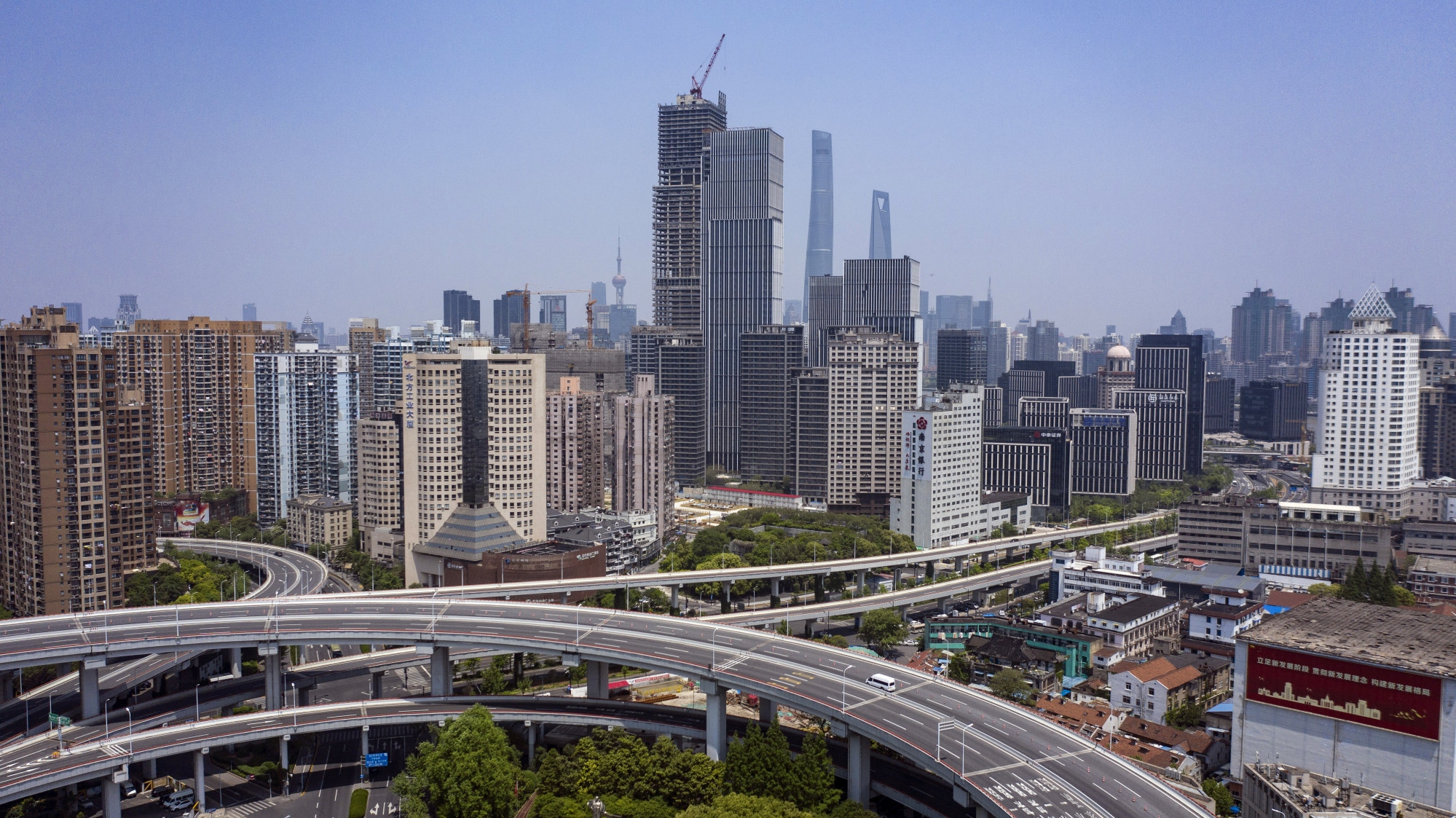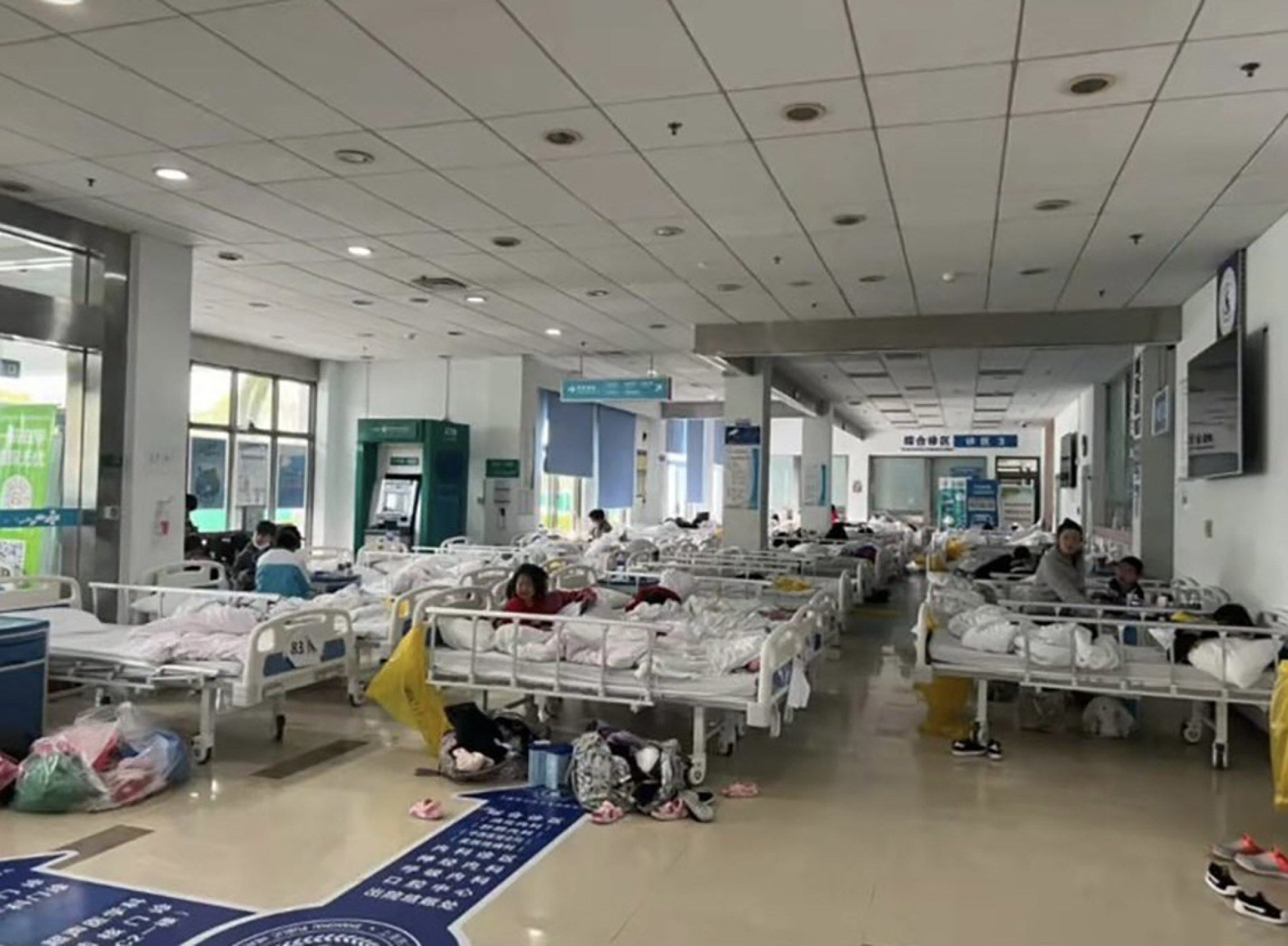
Coronavirus: Shanghai orders tests and standstill curbs in Jinshan after finding cases, doubling down on lockdowns as Xi defends China’s zero-Covid pursuit
- Shanghai’s daily new cases fell for the 13th consecutive day, dropping 8.2 per cent to 4,269 over the past 24 hours, according to data released on Friday
- Symptomatic cases declined by 6.1 per cent to 245, while 12 patients died
Shanghai reintroduced mass tests and standstill orders in Jinshan district after finding two new Covid-19 infections in an area that was cleared of the disease for more than two weeks, doubling down on curbs as President Xi Jinping defended China’s zero-Covid pursuit.
All 800,000 residents in Jinshan district in southwestern Shanghai will have to undergo nucleic acid tests on Friday, while the movements of medical staff, food deliverers and community volunteers will be limited to stem the spread of the highly transmissible Omicron variant.
Residents who were allowed to venture out to the streets as recently as Monday had to be homebound, according to notices in the district.
The partial lockdown in Jinshan followed the discovery of two cases in quarantined areas, in setbacks for a district that claimed to have reached its so-called societal zero-Covid goal- where no cases were reported for 14 days – four days earlier.

“The risks of a resurgence of the outbreak are still there, and we have to keep up our fight against the virus to prevent it from spreading among high-risk populations in certain areas,” Shanghai’s executive vice-mayor Wu Qing said during a Friday press briefing.
Shanghai’s daily new cases fell for the 13th consecutive day, dropping 8.2 per cent to 4,269 over the past 24 hours, according to data released on Friday. Symptomatic cases declined by 6.1 per cent to 245, while 12 patients died. Cumulative cases since March 1 rose to 596,000 in a city of 25 million residents.
“The percentage of declines in daily new cases remains small, and infections are still being discovered in communities,” Wu said, adding that the city cannot afford to relax its zero-Covid pursuit even after locking down China’s commercial centre for 35 consecutive days.
China’s dynamic zero-Covid policy “will stand the test of time,” Xi said. “We should prepare sufficient human resources and materials for Covid-prevention and control,” according to a readout of the Politburo meeting provided by state news agency Xinhua.

“We must guarantee people’s basic living needs and supplies … and implement prevention measures of people, objects and the environment, as well as holding industries and companies responsible,” Xi said in the readout.
The cases in Jinshan are a setback in a city that appeared to be making progress in clawing its way back to normal, after going on lockdown since April 1.
Tuesday’s data saw the biggest one-day plunge in new cases, when the number fell by 22.7 per cent.
Seven districts out of Shanghai’s 16 administrative regions claimed to have achieved the so-called societal zero-Covid goal, a situation when new cases are limited to people already in quarantine. They are Songjiang, Putuo, Jinshan, Fengxian, Chongming, Qingpu and Jiading.
Shanghai has been chasing the societal zero-Covid goal since mid-April, aiming to bring the new cases to zero in low-risk unguarded zones – “precautionary zones” without a single infection over the previous 14 days and their surrounding areas.
On Thursday, 23 new cases were detected in the city’s unguarded zones, down from the 34 a day earlier. However, the number of severe cases in the city rose to 526 from 512 on Wednesday. The number of patients in critical condition dropped slightly to 95 from 99. Total fatalities amid the latest wave of the outbreak reached 515.
Nationwide, officials discovered 5,856 new cases in the last 24 hours, 16.2 per cent more than a day earlier, according to data released on Friday.
On Friday evening, the Beijing Centre for Disease Control and Prevention said 16 new infections had been detected, taking the total to 610 since the Omicron variant surfaced in the capital on April 22.
The Communist Party’s Shanghai committee said in a statement on Thursday evening that cadres and party members are required to fight at the forefront to keep the virus at bay.
“Drastic actions to ease the lockdown are unlikely to be taken in the coming two or three days as city officials are adamant about achieving the societal zero-Covid goal,” said Wang Feng, chairman of Shanghai-based financial service group Ye Lang Capital. “Irritation among businesses people and investors is brewing because of the lockdown’s devastating impact on the local economy.”
But Joerg Wuttke, president of European Union Chamber of Commerce in China, told a media briefing on Thursday that the number of businesses allowed to restart operations represented just “a drop in the ocean,” urging the local authorities to further relax the rules to put the city’s economy back on track.
Shanghai People’s Procuratorate said in a statement on Friday that it had sued seven people who were involved in trading fake special vehicle passes, supplying substandard food and rigging prices of food and daily essentials during the lockdown.
It said it is investigating another 50 or so cases that took place amid the lockdown, and pledged to weed out market irregularities to safeguard people’s interests.


